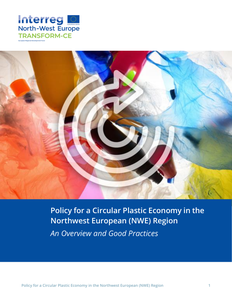This document combines four reports on existing regional business support programmes for inclusion or understanding of circular economy (CE) objectives, deliverable DT3.1.2 from the transform-CE project. Besides a general overview on national and regional level, the focus is on a selection of national and regional programmes aimed at the plastics industry. After explaining the format to structure the programmes, the results for the four regions are presented: Greater Manchester (UK), Rhineland Palatinate and North-Rhine Westphalia (DE), Wallonia (BE), Central Netherlands (NL).
MULTIFILE

Urban construction logistics has a big impact on cities. The topic of this paper is governance strategies for realising more sustainable urban construction logistics. Although not much research has been done in the field of governance of construction logistics, several authors have stressed the fragmented nature of the construction industry and the importance of collaboration in urban construction logistics as issues. A literature review was done to identify the barriers in collaboration. Based on these barriers the research objective was to determine which drivers for collaborative governance are needed to improve urban construction logistics. The methods for data collection were semi-structured interviews and a focus group. The collaborative governance model is applied as a strategy to overcome the barriers in collaboration and governance identified. Key findings are both formal and informal barriers hinder the governance of construction logistics. Based on a collaborative governance model we identified four for improving collaborative governance.

In the recent ‘Regional outlook’, the OECD (2014) convincingly argues that cities can be the drivers of national growth and recovery: in principle, their diversity and density makes people and companies more productive and innovative. This is not only a tale of large cities: over the last decade, as recent studies demonstrate (e.g. Dijkstra, 2013) many smaller and medium-sized cities across Europe were important economic engines. But this did not happen automatically: to make that happen, ‘getting cities right’ is the key challenge, and action on the city level matters! As demonstrated by recent OECD data (OECD, 2014), poorly organised cities fail to reap their economic potential.
MULTIFILE
